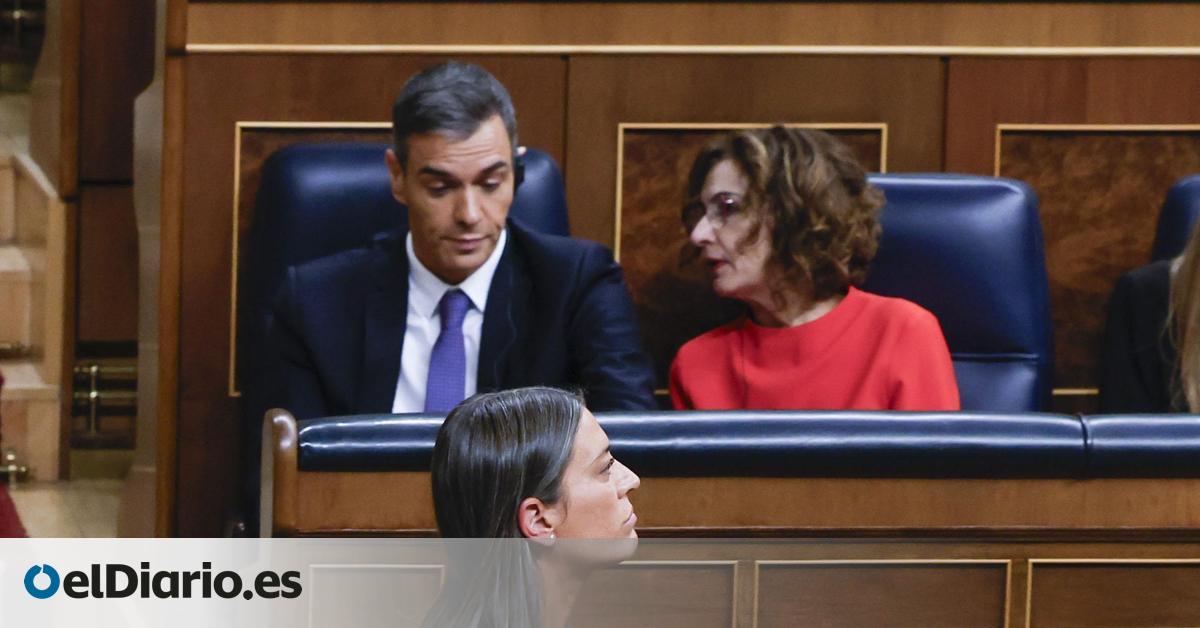
The Ministry of Finance has summoned the autonomous communities to the Fiscal and Financial Policy Council (CPFF) next Monday the 17th, after weeks of teasing out the daisy about a call in which Vice President María Jesús Montero will transfer to the regional governments the spending ceiling and the path of stability that she plans to approve in the Council of Ministers.
Treasury sources have confirmed the call, which must be communicated to the regional councilors 72 hours in advance, in which the Executive will transfer the spending ceiling that it plans to approve for the 2026 General State Budget (PGE) project, as well as the distribution of the deficit objectives between the different administrations.
On the agenda, Vice President Montero has included a specific point on the status of the reform of the Autonomous Financing System, which has expired since 2014 and which the Government had proposed to modify in this legislature.
The Ministry of Finance has not summoned the communities since February of this year, when Montero brought to the Fiscal and Financial Policy Council the methodology agreed with ERC to proceed with the forgiveness of part of the regional public debt, a meeting in which the advisors of the Governments led by the PP left the table.
Then the haircut proposal and the distribution of the collection of the new banking tax angered the PP communities, which did not prevent the CPFF agreement from going ahead, although later regional governments such as Madrid appealed it because they understood that a quorum did not exist.
The appointment comes a few days after ERC agreed with the Government to postpone the debate on the collection of 100% of personal income tax by the Agència Tributària de Catalunya, one of the key pieces of the so-called singular financing that the PSC promised to the replacements in exchange for allowing the investiture of Salvador Illa as president of the Generalitat.
Before the end of the political year, in July, the Minister of Territorial Policy, Ángel Víctor Torres, signed with the Catalan Presidency Minister, Albert Dalmau, an agreement to promote this unique financing, committing to present a new distribution model to the communities at the CPFF meeting after the summer.
In fact, it is usual for the Government to convene the Treasury advisers in July to inform them of the distribution of the deficit objectives and the amounts of the payments on account (the bulk of the resources they have for their Budgets). However, Montero decided to transfer these amounts to the communities through a letter, given the delay in the processing of the draft Public Accounts.
The reform of the distribution system is an old demand of all communities, especially those that are underfinanced by the system developed by the Government of José Luis Rodríguez Zapatero in 2009, also agreed with ERC. Since then, the Valencian Community, the Region of Murcia and Castilla-La Mancha receive adjusted resources per inhabitant that have led to over-indebtedness of these regions.
But the different interests of the autonomous communities when defining the adjusted population, one of the key variables of the model in which aspects such as depopulation or aging are taken into account, prevented the system from being reformed even during the legislature in which Mariano Rajoy governed with an absolute majority (2011-2015).
The meeting of Vice President Montero with those responsible for the regional Treasury also represents a key step for the Budgets, since it confirms that the Council of Ministers will approve a new path of stability to prepare the Accounts, although it is possible that it will be shipwrecked in Congress due to the breakup of the seven Junts deputies with the Government.
The Government returned from the summer with the determination to present Accounts for 2026 even if they are not approved in the Lower House. At the beginning of September, the Ministry of Finance published the order that gave the starting signal for its preparation, and Economy updated the macroeconomic picture with an increase in growth forecasts. But, since then, no further steps had been taken.
If the path of stability is rejected in Congress on two occasions, the Government will prepare the Budget with the one that is currently in force and that the Treasury maintains is more beneficial for its own interests, since it gives it more margin for spending to the detriment of the autonomous communities. Already last year Junts refused to support it because it did not reserve a third of the deficit to the regional Executives. This year, the talks will take place in an even more complex context.
Source: www.eldiario.es

